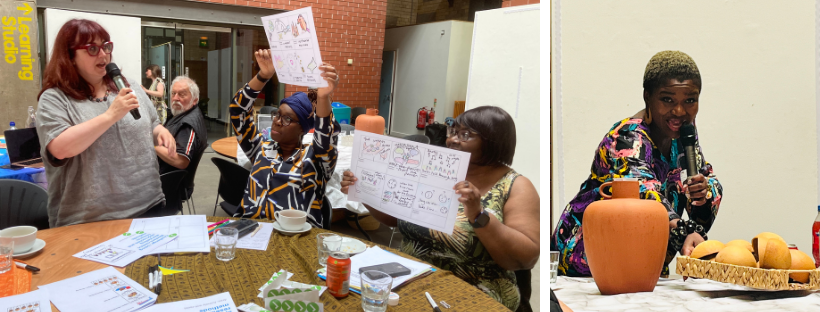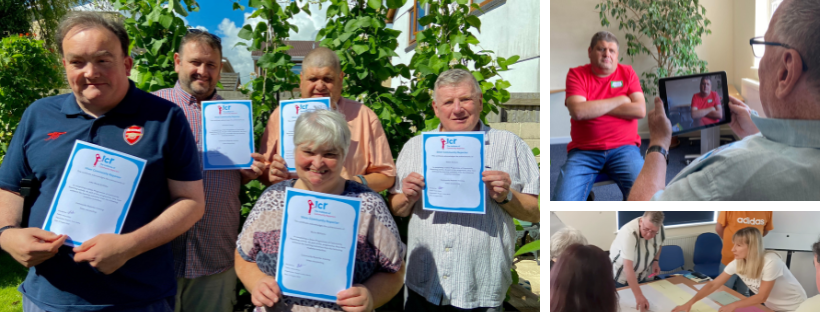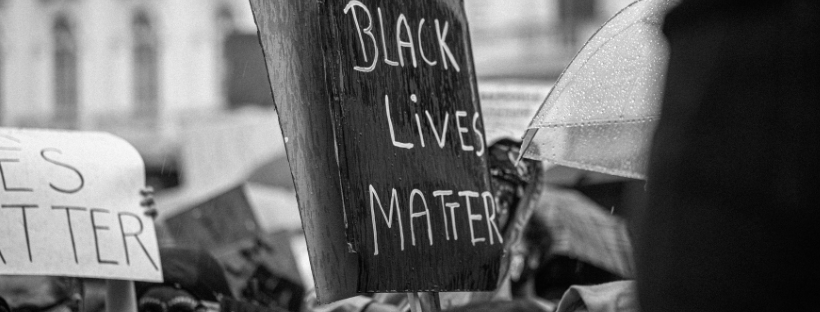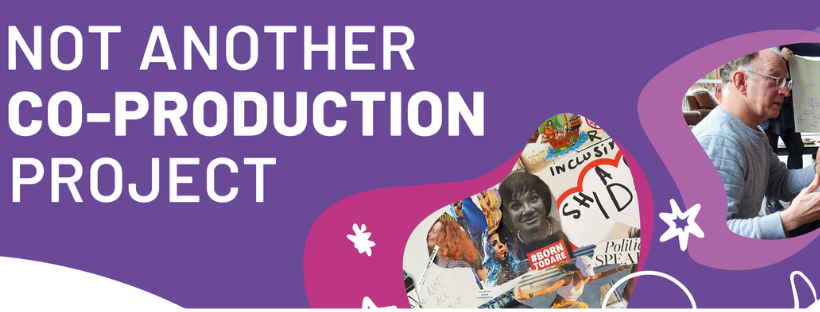COMMUNITY REPORTER HACKATHON – REPORT AND EVENT SUMMARY VIDEO LAUNCHED

You can also listen to an audio executive summary of the learning report here. The event was funded and support by NCRM.

You can also listen to an audio executive summary of the learning report here. The event was funded and support by NCRM.

People’s Voice Media and Think Local Act Personal (TLAP), in partnership with Halton Borough Council, launched a Community Reporting project to gather stories from people with learning disabilities and Autistic individuals in Halton. The project aimed to explore how these individuals experience local services, highlighting what works, what doesn’t, and what can be improved. By listening to their lived experiences, the initiative sought to understand the elements that contribute to a meaningful life and identify ways local services can better support people.
Central to the project was a commitment to accessibility and inclusivity. People’s Voice Media was supported by members of the National Co-production Advisory Group (NCAG) to facilitated storytelling sessions focusing on people’s experience of services. Over several months, we gathered stories from a range of people and ran some online workshops to explore the key insights in the stories with the storytellers. At these sessions we developed some recommendations based on the lived experiences gathered and explore how this learning could support the implementation of the One Halton Co-Production Charter.
The results of this work can be viewed in this short video:

Friends United Together are a group of adults with learning disabilities from Swansea. Last year they became Community Reporters as they wanted to create a video to share their story about setting-up a co-operative.
This short film is a story about of how their friendship and determination helped them to overcome challenges and achieve better life choices. The film charts the Friends’ journey in setting-up a care co-op, improving their lives and being in control of the support they receive. This process and film was supported by IMPACT.
The video was co-produced by the Friends United Together Co-operative, Community Lives, Anna Sellen and People’s Voice Media, with contributions from Swansea Council and Cwmpas Coop.

People’s Voice Media recently worked with Dr. Dayo Eseonu from Lancaster University on a research project investigating racial justice and equality that saw us work with racially minoritised young people in South Manchester as part of a 3-day Community Reporting programme. Tony, our facilitator, shares his experiences of the programme…
The participants are young people (13 to 15 years old) who were attending Rekindle’s summer school in Hulme, Manchester. I was tasked with equipping the young people with Community Reporting skills to share their lived experiences about their experience of place from a racial justice and equality lens.
There was so much that resonated with me about this piece of work as it brought up my early years of experience of education and racial injustice. As a part of my preparation, I visited the school’s website and was immediately impressed with the school’s ethos and especially their strapline “The school you wish you’d attended”.
There were some challenges on the project, such as the age range of the group being slightly younger than I had expected and each day having slightly different participants (rather than the same group throughout). However, I adapted the session plan to keep the young people engaged with a variety of participative activities and I was mindful of a conversation that we had previously had at People’s Voice Media, wherein we spoke about giving ourselves the permission to be creative. Technical issues with the recording kit meant that the stories we gathered couldn’t be used as recordings due to sound quality but we were still able to get rich insights from the young people about their experiences of growing-up in the city. They developed skills in interviewing and storytelling, even if the technology failed us!
Working on this project it was important that I created Timothy Clarke’s four stages of psychological safety in order to make it a space in which the young people could share lived experiences connected to racial equality and justice:
It is these pillars that enabled us to have so many insightful, challenging, productive and human conversations throughout the three days.
Overall, the sessions were fun, there was a point when one of the young people asked me about my motivation for working with young people and I paused, looked up and another young person was trying to fit an elastic band around his head… I explained that it is moments like these that I relish working with young people.

Do you want to work in better partnership with those who receive your services?
Do you think that Coproduction is a good concept but not sure how to make it real in your work?
Do you want to listen more to people’s stories of their lived experience but not sure where to start?
Do you want to find others who have the same values as you and learn from their work?
Ideas Alliance together with People’s Voice Media are running a three-year-project from 2021-2024 looking at how we develop, explore and exchange knowledge of co-production across England, with funding from the National Lottery’s Community Fund.
We are looking for people from 12 organisations/ groups from (or with connections in) North East London to be involved in the project for its third year from October 2023 – July 2024. We are keen to partner with groups and organisations that are community-focused to deliver this.
The project will include access to a Community Reporting Training programme and the Institute for Community Reporters web platform as well as co-production learning workshops, 1 to 1 coaching and an end of project community learning festival which we will co-create together.
The offer across the project is not ‘fixed’ – we want to work with people who can co-create what support they need in relation to co-production, and what support they can offer other people. This will be a journey of learning together and supporting each other to develop a deeper understanding, and greater knowledge of co-production and its impact.
View the up to date information sheet below and express you interest in being involved via this form.